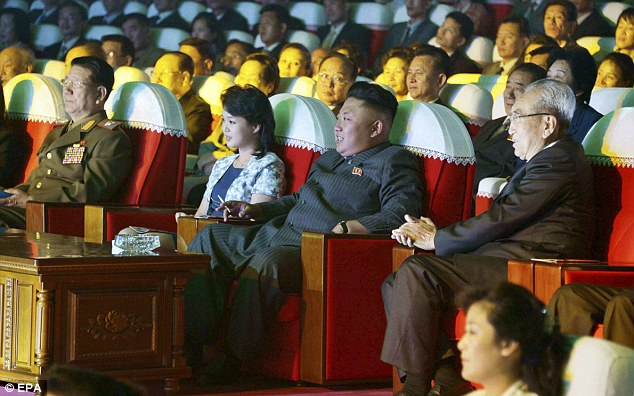(Sarah Larson)
Mansa Musa
(Contemporary -Wordpress- Source)
(Created by, Stephen Liddell, a historically conscious writer with an enthused and trusting following, he indirectly sheds light on how the event of Mansa Musa can reflect an issue relating to a contemporary Minnesotan.) Born in 1280 AD, Mansa Musa led an empire of noteworthy extreme wealth, titled: the Malian Empire of western Africa. Controlling quite arguably the most luxurious and demanded commodities of the time (gold and salt -majorly-), allowed Mansa Musa to dominate above restrictions of currency. Effects of the king’s travels still bleed into modern times such as a influential reputation, an understanding of true wealth and more. Yet, the true issue highlighted comes down to the legendary economic wave that is still debated in its positivity with its cultural effects.
-North Korean- ‘Ethical’ Issue expanded
Pictured:
A dictatorship and of communist rule, North Korea presents a hidden issue with a singular individual force (Jim Jong Un) in ruling. Jim is defined from being the supreme leader of the Democratic People’s Republic of Korea. That is: a sole motive controlling a relatively great force. This control is a pocketable example of abuse of power today and is easily considered an issue on more levels than one.

Understanding the Relating Issue
As an inhabitant of a global society generally capitalizing and idealizing on a form of government that promises a motive to the mass, alternatives create panic. This panic is systematically justified as derived from the perceived suffering of all involved. Yet, a common theme of an issue is seen between a “cruel” dictatorship and a legendary king of the Malian Empire.
Mansa Musa with no concern of financials found greed in the pursuit of value. Education became a pleaded concern to communities from his economic presence. This is similar to the North Korean agenda (of valued commodities) as it can be interpreted from this quote:
“The military might of a country represents its national strength. Only when it builds up its military might in every way can it develop into a thriving country.”
Throughout history it is a rarity in itself to find an individual with exponential potential to create dramatic change on mood swings. But a raised cultural basis reflects an economy being obsolete through perceived power. The justifications of morals do not represent the issue. The issue lies in a single minded unity from the perspective of a celebrated conflict (an elusive democratic mindset). The whims of the extent of “suffering” for the reap of future common good is relatable for an average American citizen in the present issue of divided power. For example, the American electoral college originates from an ancient issue of who deserves power.
Having the access to (highly estimated wealth of Mansa Musa) 26,455 pounds of gold for a religious pilgrimage does not prospectively differ from the blindly terrified loyalty of 24.9 million human beings (North Korean population). Yet being deserving of power is less important than being formally equipped to dilute constant threats of change while presenting an illusion of choice in the form of a “flawless” system. Kings, dictatorships and all forms of government rely on this manipulated reality. Drawing a conclusive argument brings up more questions than answers but the paradox of comparing what may appear as two opposite individuals (one deriving from wealth and the other of controlled poverty), answers the idea and issue of power/ equality.
